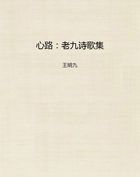THE EMANCIPATION OF THE SERFS
The Question Raised--Chief Committee--The Nobles of the Lithuanian Provinces--The Tsar's Broad Hint to the Noblesse--Enthusiasm in the Press--The Proprietors--Political Aspirations--No Opposition--The Government--Public Opinion--Fear of the Proletariat--The Provincial Committees--The Elaboration Commission--The Question Ripens--
Provincial Deputies--Discontent and Demonstrations--The Manifesto--
Fundamental Principles of the Law--Illusions and Disappointment of the Serfs--Arbiters of the Peace--A Characteristic Incident--
Redemption--Who Effected the Emancipation?
It is a fundamental principle of Russian political organisation that all initiative in public affairs proceeds from the Autocratic Power. The widespread desire, therefore, for the Emancipation of the serfs did not find free expression so long as the Emperor kept silence regarding his intentions. The educated classes watched anxiously for some sign, and soon a sign was given to them. In March, 1856--a few days after the publication of the manifesto announcing the conclusion of peace with the Western Powers--his Majesty said to the Marshals of Noblesse in Moscow: "For the removal of certain unfounded reports I consider it necessary to declare to you that I have not at present the intention of annihilating serfage; but certainly, as you yourselves know, the existing manner of possessing serfs cannot remain unchanged. It is better to abolish serfage from above than to await the time when it will begin to abolish itself from below. I request you, gentlemen, to consider how this can be put into execution, and to submit my words to the Noblesse for their consideration."
These words were intended to sound the Noblesse and induce them to make a voluntary proposal, but they had not the desired effect.
Abolitionist enthusiasm was rare among the great nobles, and those who really wished to see serfage abolished considered the Imperial utterance too vague and oracular to justify them in taking the initiative. As no further steps were taken for some time, the excitement caused by the incident soon subsided, and many people assumed that the consideration of the problem had been indefinitely postponed. "The Government," it was said, "evidently intended to raise the question, but on perceiving the indifference or hostility of the landed proprietors, it became frightened and drew back."
The Emperor was in reality disappointed. He had expected that his "faithful Moscow Noblesse," of which he was wont to say he was himself a member, would at once respond to his call, and that the ancient capital would have the honour of beginning the work. And if the example were thus given by Moscow, he had no doubt that it would soon be followed by the other provinces. He now perceived that the fundamental principles on which the Emancipation should be effected must be laid down by the Government, and for this purpose he created a secret committee composed of several great officers of State.
This "Chief Committee for Peasant Affairs," as it was afterwards called, devoted six months to studying the history of the question.
Emancipation schemes were by no means a new phenomenon in Russia.
Ever since the time of Catherine II. the Government had thought of improving the condition of the serfs, and on more than one occasion a general emancipation had been contemplated. In this way the question had slowly ripened, and certain fundamental principles had come to be pretty generally recognised. Of these principles the most important was that the State should not consent to any project which would uproot the peasant from the soil and allow him to wander about at will; for such a measure would render the collection of the taxes impossible, and in all probability produce the most frightful agrarian disorders. And to this general principle there was an important corollary: if severe restrictions were to be placed on free migration, it would be necessary to provide the peasantry with land in the immediate vicinity of the villages; otherwise they must inevitably fall back under the power of the proprietors, and a new and worse kind of serfage would thus be created. But in order to give land to the peasantry it would be necessary to take it from the proprietors; and this expropriation seemed to many a most unjustifiable infringement of the sacred rights of property. It was this consideration that had restrained Nicholas from taking any decisive measures with regard to serfage;
and it had now considerable weight with the members of the committee, who were nearly all great land-owners.
Notwithstanding the strenuous exertions of the Grand Duke Constantine, who had been appointed a member for the express purpose of accelerating the proceedings, the committee did not show as much zeal and energy as was desired, and orders were given to take some decided step. At that moment a convenient opportunity presented itself.















